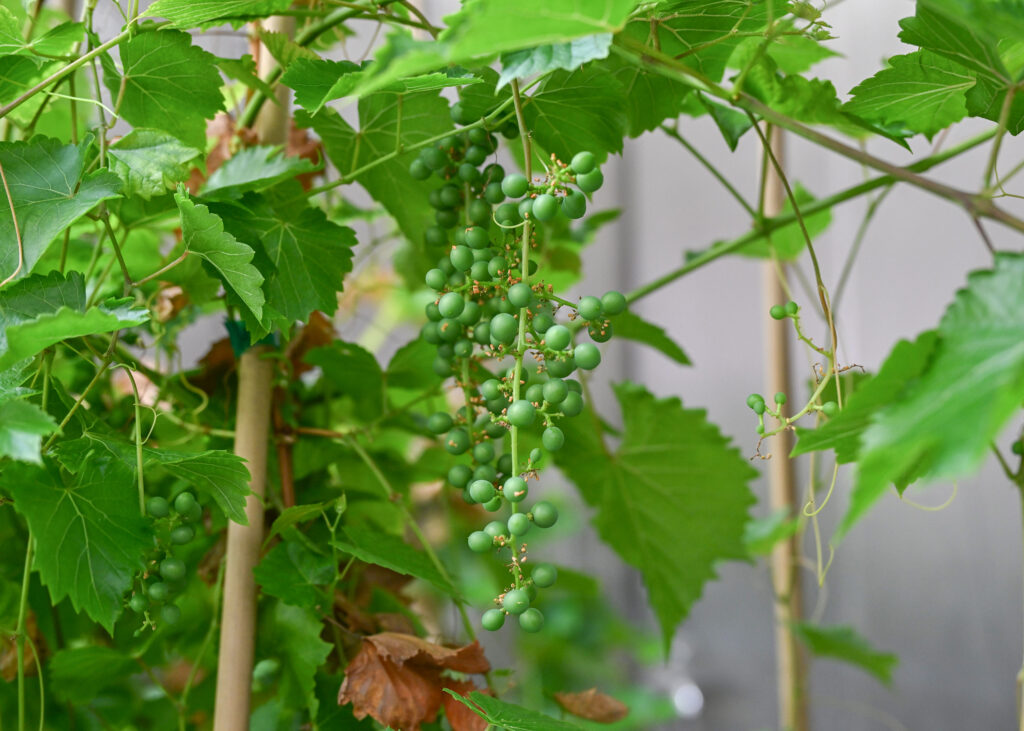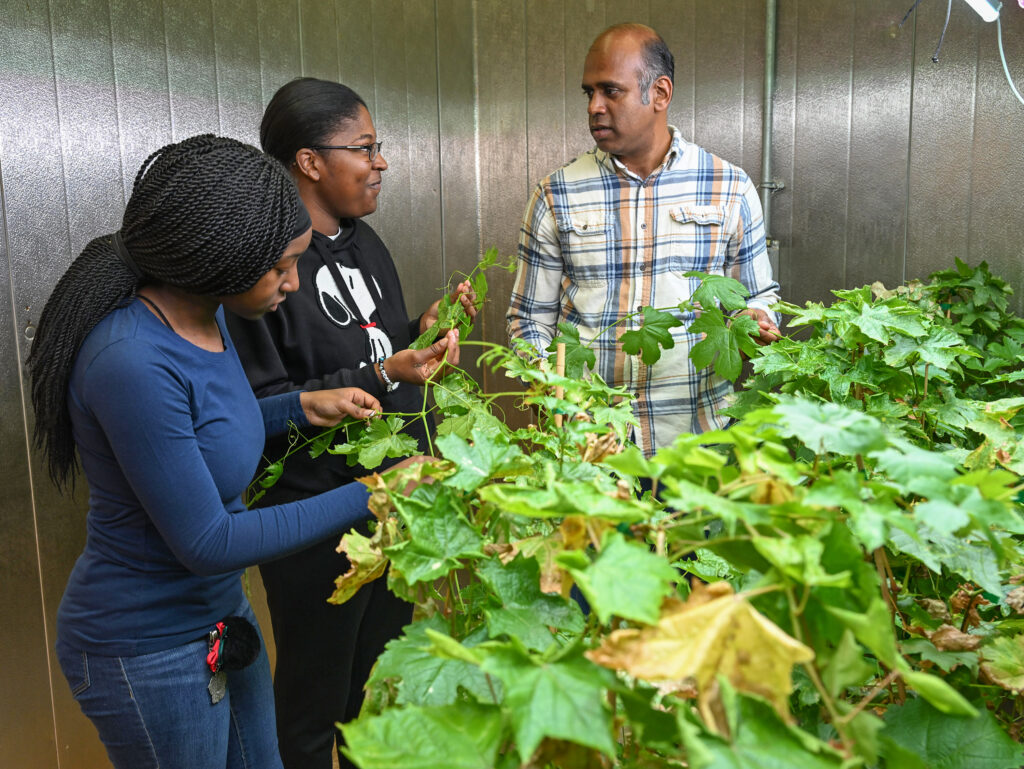
Grapevines, just as with other crops, have a new enemy: climate change. Producers and researchers are noticing changes in the leaves and berries, causing concern for the $270 billion table and wine grape industry in the United States.
University of Maryland Eastern Shore’s “grape guy” Dr. Sadanand Dhekney has been working on improving the fruit staple for disease resistance for the past two decades. A newly funded U.S. Department of Agriculture grant will allow him to address the impacts of climate change and build on his research on fungal diseases like powdery mildew that grapevines are susceptible.
“Worldwide, grape growers are seeing a decrease in berry colors, along with sunburn damage in berries caused by heat stress from high temperatures,” Dhekney said. “The new project will allow us to study these effects and the genes involved. Using techniques in precision breeding and genome editing, we hope to improve table and wine grape cultivars for climate resiliency.”
Quality of the fruit and increased shelf life are key outcomes.
“Traditional varieties of grapevines are ancient, having been discovered or developed over several hundreds of years,” the professor of plant breeding and biotechnology said. “The goal is to use these cutting-edge techniques to add traits for abiotic stress tolerance while keeping the desirable traits intact.”
Maryland has more than 1,000 acres in grape production, with hopes of expanding that number to service a burgeoning wine industry, that includes agritourism. Dhekney’s work is timely, as a new law took effect in July 2024 requiring the state’s farm wineries to grow at least 20 acres of their own grapes or other fruit, or 51 percent of their ingredients sourced in-state. Along with developing climate-smart grapevine cultivars, the grant also funds extension activities to increase grower awareness of grapevine canopy management practices. The $600,000 capacity building grant (a competitive grant among the nation’s land-grant institutions) was awarded by the National Institute of Food and Agriculture.

The benefits of the project are multifaceted, Dhekney explained, touching grape producers, farm workers and consumers.
“Precision breeding and gene editing involve modifying grape genomic DNA sequences, which is more consumer and eco-friendly than traditional breeding and avoids concerns about genetically modified organisms. Pesticide usage is minimized or prevented, which decreases production costs for growers, reduces field workers’ exposure and lessens the risk of negative effects for consumers,” he said. “Plus, it’s safe for the environment, as it promotes using sustainable management and practices.”
Dhekney’s other research projects are funded by different programs under USDA-NIFA including the Evans-Allen Program, supporting the nation’s 1890 land-grant institutions, and its competitive programs, the Agriculture and Food Research Initiative and the Specialty Crop Research Initiative.
Undergraduate and graduate students also reap the benefits of Dhekney’s research, as it heavily involves their participation.
“Student researchers are trained in diverse areas, including cell and molecular biology,” he said. “They also get quality experience in gene editing and genetic engineering. The education and hands-on training on these techniques they get from working in the lab and in the field allows them to be competitive in the industry’s workforce.”
Gail Stephens, agricultural communications, University of Maryland Eastern Shore, School of Agricultural and Natural Sciences, UMES Extension, gcstephens@umes.edu, 410-621-3850.
Photos by Todd Dudek, agricultural communications, University of Maryland Eastern Shore School of Agricultural and Natural Sciences, UMES Extension, tdudek@umes.edu

